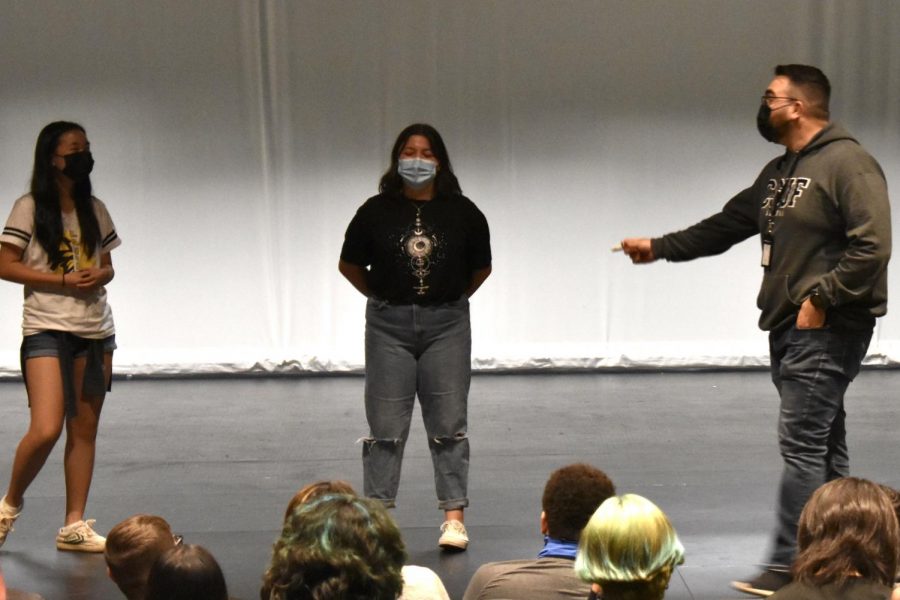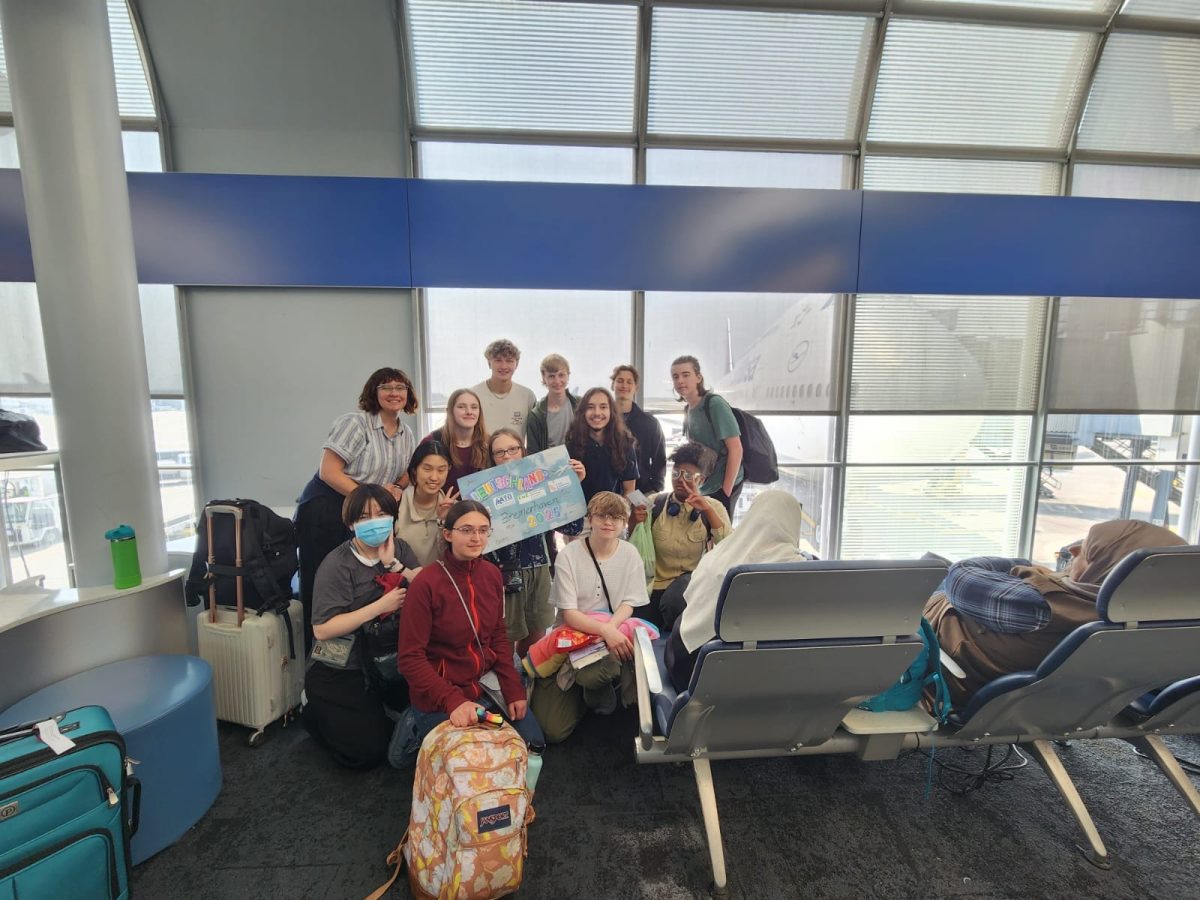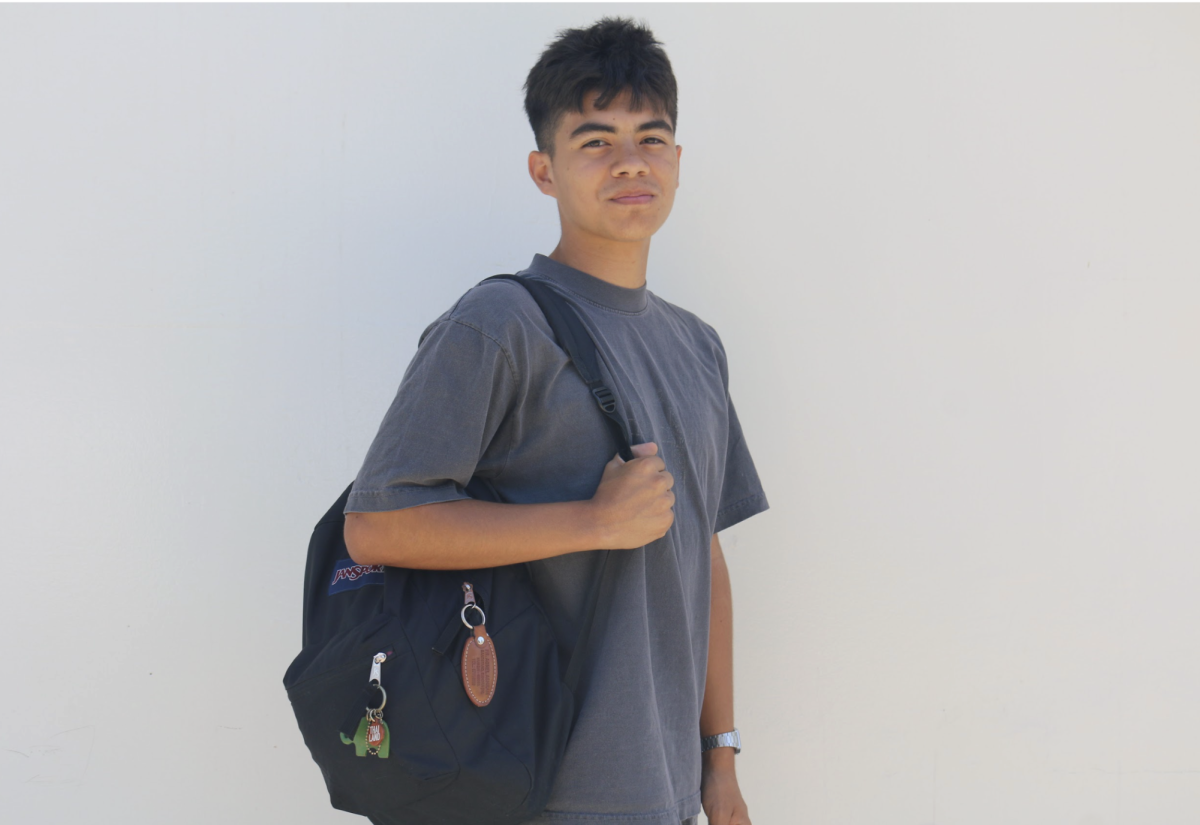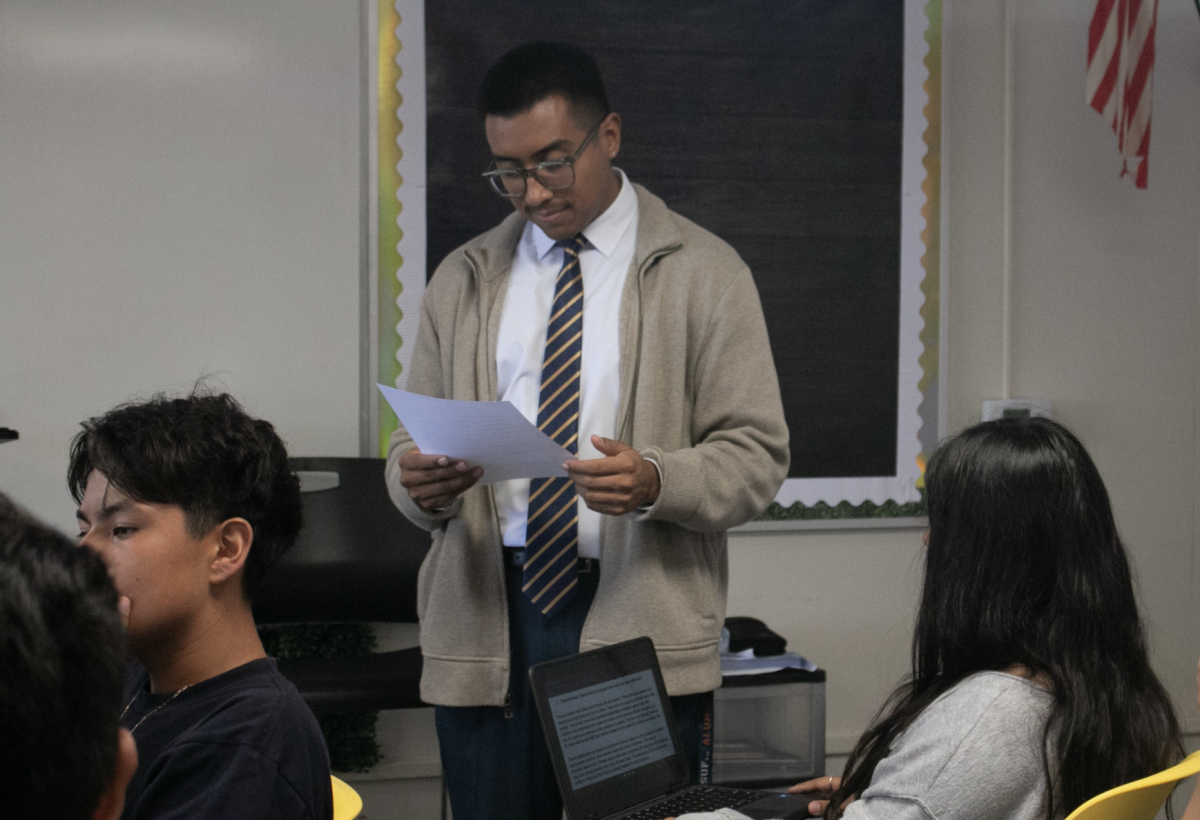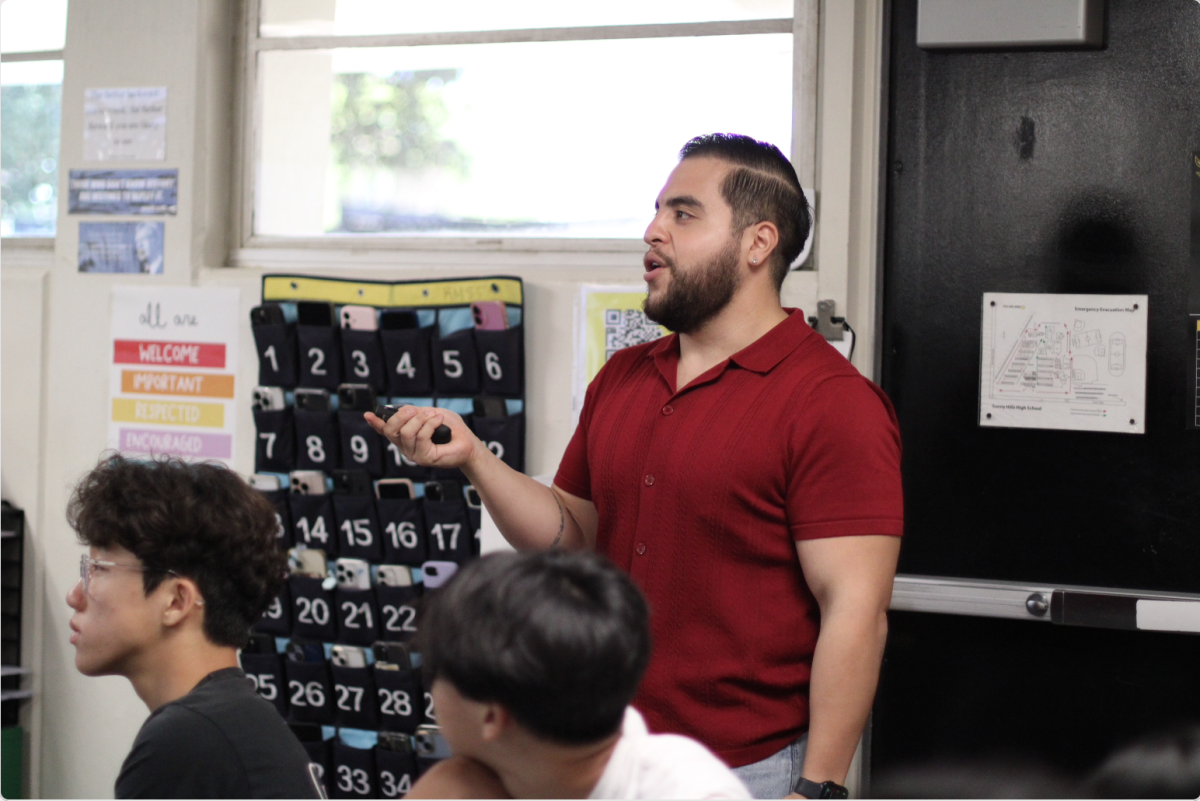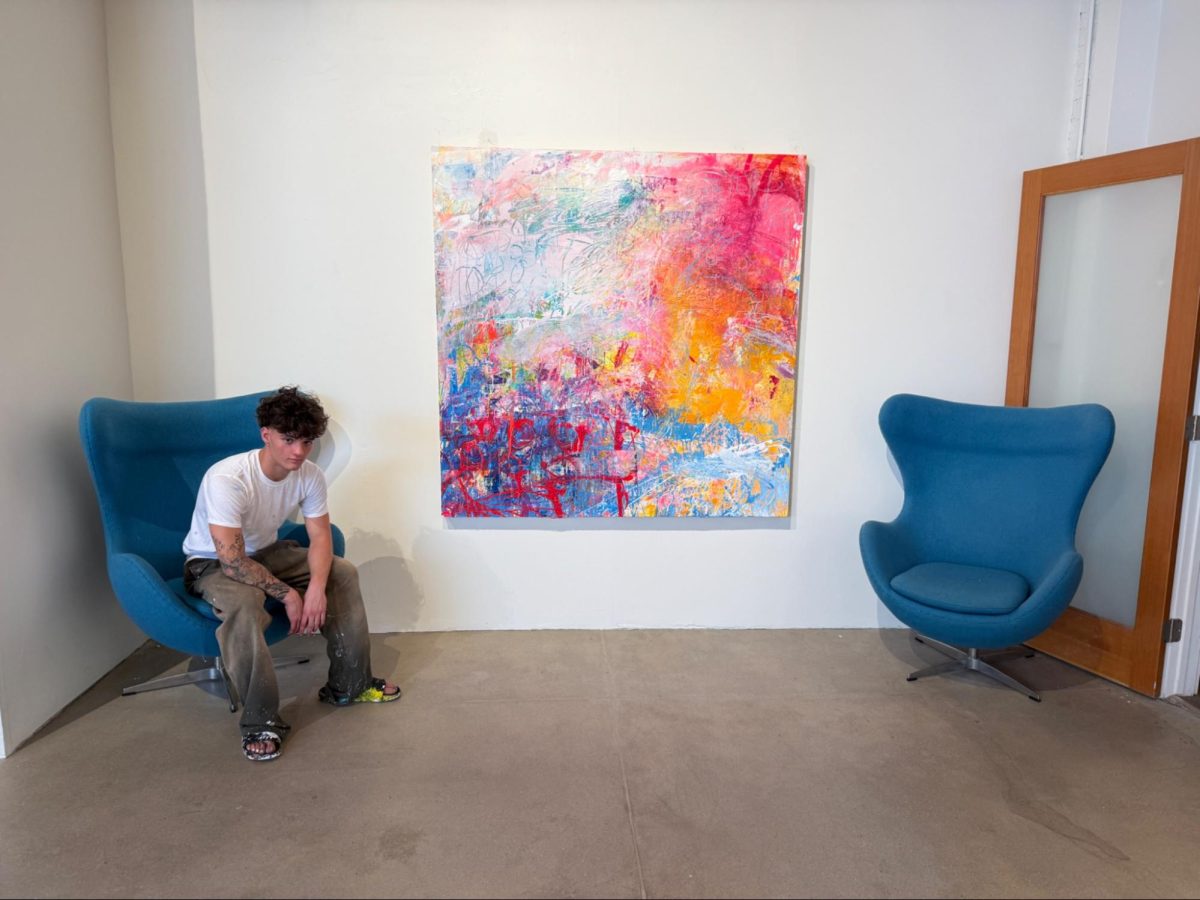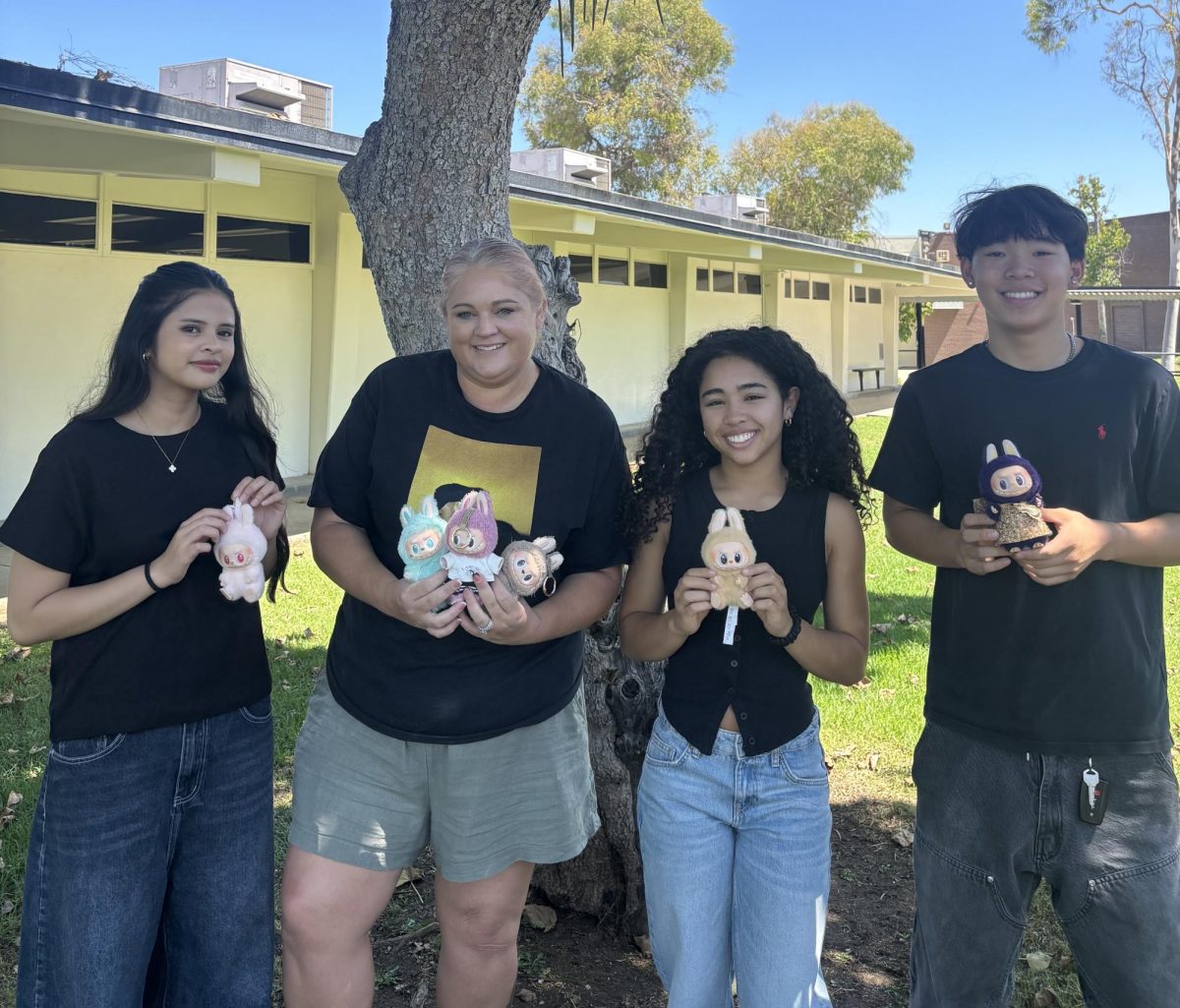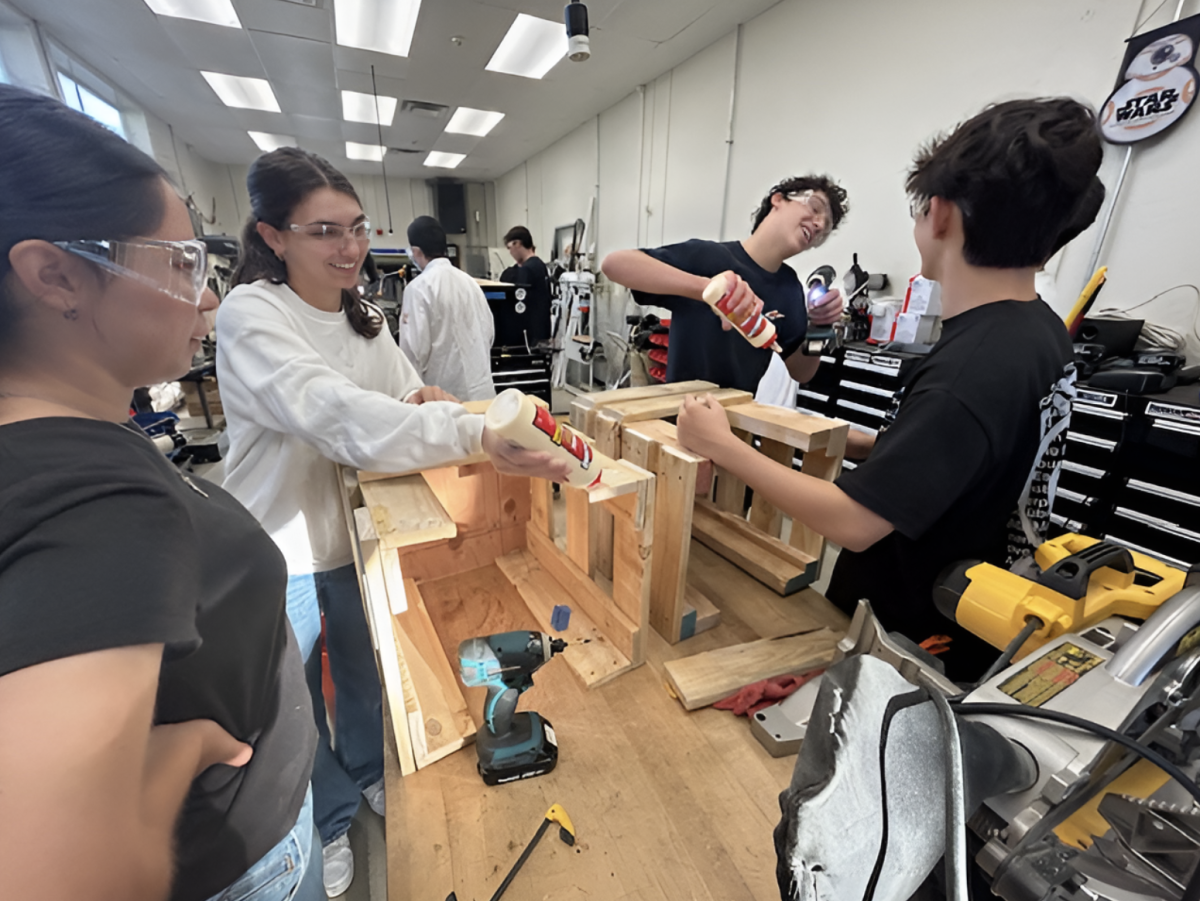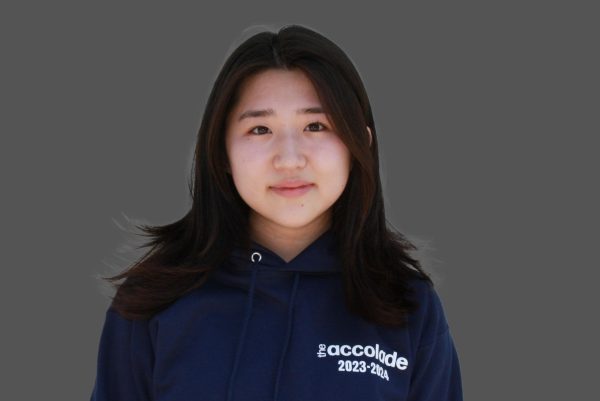New Sunny Hills theater teacher Christian Penuelas still recalls his first time watching La Habra High School Theater Guild’s re-enactment of “Beauty and the Beast.”
The admirable size, grandeur and professionalism were enough to convince Penuelas — a freshman at the time — to pursue theater as a future career.
“I envied the spotlight of the performers and wanted to take part in that,” he said. “I didn’t feel the need to be the star of the show but just to be a part of the process and share that experience with others on stage was great for me.”
During his four years at La Habra High School, Penuelas said he pursued his passion for marching band and drumline and later kick-started his journey in theater during his sophomore year.
In 2011 as a high school senior, Penuelas began his volunteer work for Rancho-Starbuck Intermediate School as a drumline instructor, coaching students two-three times a week after school.
“My good friend was running the program, so I asked if I could coach alongside him, and he let me,” Penuelas said. “Eventually, they hired me on staff once it became an official program, [and] started paying me my third year.”
He continued his musical responsibilities as the drumline coach through his college years, and by 2016, graduated from California State University, Fullerton, with a bachelor’s degree in cinema and television arts.
“Right out of college, I wanted to work in the film industry, but upon learning the conditions of it and the instability, I decided to go toward teaching,” Penuelas said.
Nevertheless, the new teacher made a compromise that allowed him to preserve his passions and put his talents to good use.
While Penuelas never insisted on becoming an educator, the same year of his college graduation, the Lowell Joint School District hired Penuelas as a substitute teacher for Rancho-Starbuck Intermediate School and all other surrounding elementary schools.
After 10 years spent at Rancho-Starbuck Intermediate, the La Habra High School alumnus later returned to the high school as a substitute teacher and an improvisation coach for an after-school team cast solely through auditions. Simultaneously, he began his official journey with the teaching profession and received his credential and master’s degree in education at National University in San Diego in June of 2021.
“I chose Sunny Hills because I love the culture of the school, the staff is great and the kids are super nice; I am very familiar with this district, and it is close to home,” said Penuelas, who lives just 15 minutes away, near Whittier and La Habra.
Despite his first year as full-time educator, Penuelas, who also teaches four periods of English 2, makes an effort to set reasonable expectations for himself.
“I’m not trying to compare myself to what was done before, [and] I don’t feel pressured to fill the shoes [of last year’s theater teacher],” he said. “It’s a fresh start, [but] at the same time, I do feel the pressure of [providing] an opportunity for students to perform.”
As a first-time theater student, sophomore Abhijit Sipahimalani appreciates Penuelas’s teaching style.
“He is normally pretty laid-back while teaching, [and] let’s us go at our own pace,” Sipahimalani said. “However, he does make sure that we do learn what we need to do, [and] tries to help us make sure that the assignment is completed and not just left as missing.”
The new teacher stresses the importance of creating a collaborative environment for all his students, especially considering the school’s recent decision to combine all theater levels into a fifth period class as a result of low student enrollment.
“Whether that is in my English class where students can work on assignments together or my theater class where students work together reading plays and acting in scenes, I like students to work together,” Penuelas said. “If it was all independent work, then what is the point of coming to school?”
As her first year in SH theater, sophomore Radiyah Ahmend said Penuelas’s teaching style is different from her middle school experience.
“We went straight to doing monologues rather than other exercises associated with being calmer on stage,” Ahmend said. “Something I like about the way [he] uses teamwork is that it helps us bond with our peers even more and see their creativity,”
After a year of online learning, face-to-face interaction proves to be particularly favorable for theater students who rely on physical communication with their peers.
“Being able to interact with people is something I missed last year, [and] in a class like theater, people are performing and talking all the time, so being in person is even more crucial compared to another class.” Sipahimalani said.
As an enthusiastic performer, Ahmend agrees with Sipahimalani’s grateful attitude toward the return to traditional learning.
“Being able to act with my peers in person serves as a real confidence boost,” she said. “[However], it can be really hard to show any expressions when everybody can only see my eyes, [and] this is more challenging as we have to think more in depth to get these subtle messages across to the audience.”
Amid the difficult transition from remote to in-person learning and the challenges posed by the COVID-19 virus, Penuelas hopes to create a supportive environment for his students.
“They’ve been at home for so long that I want to create an opportunity for students to be a part of a group and perform again,” Penuelas said.
However, with a large fifth period class consisting of 54 students from all different levels and styles of theater, Penuelas acknowledges that it’s a challenge to accommodate all students.
“I’m trying to create a class that does encompass all aspects of theater, [but] as of right now, everyone is doing the same stuff,” Penuelas said. “With such a huge class, it takes a lot of time to get through any sort of performance-based assignment [and] it’s a slow process of getting through everyone, [but] later in the year, I would like to give opportunities for more advanced students to have a different role.
Penuelas said that although he wouldn’t be able to bring back a fall musical this semester, he plans to produce a spring play. And perhaps in future years, the program will grow again.
“The hope is to build the theater program back up to where there are multiple periods of theater a day,” Penuelas said. “I would love smaller, more individualized classes where we can do more and get more done.”



